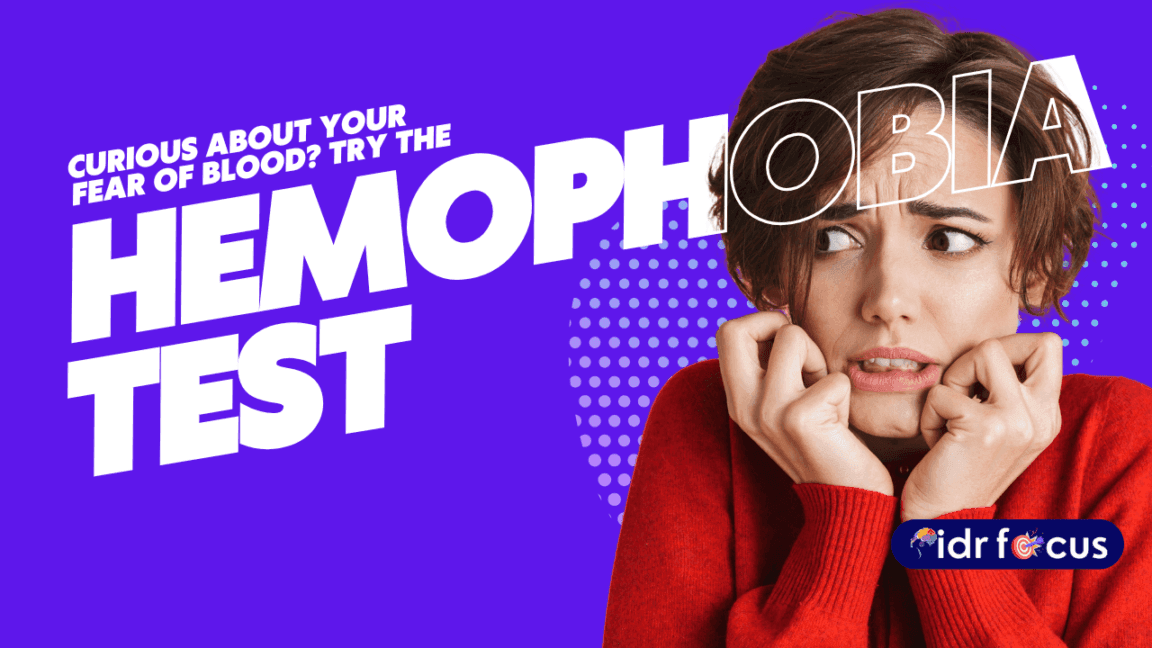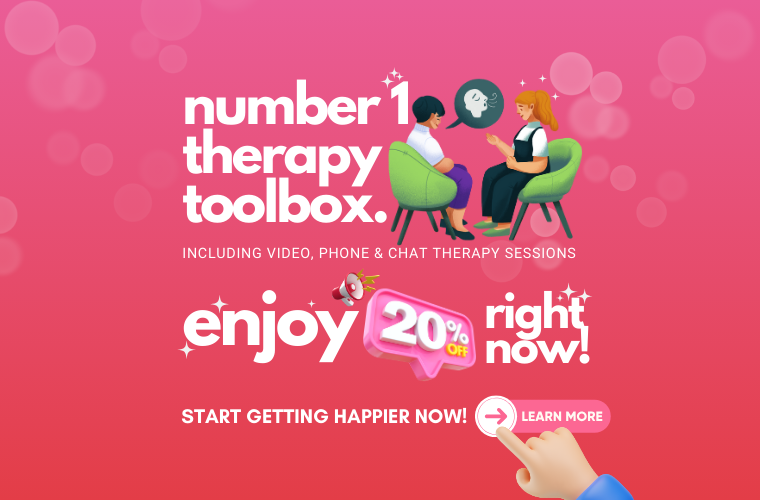Why Take the Hemophobia Test?
If you avoid medical settings, feel lightheaded at the thought of blood, or experience physical discomfort when you see blood, our Hemophobia test can help you better understand your feelings. Knowing the severity of your fear can guide you toward strategies to manage it. The test is designed to give you insights into your fear levels and suggest ways to cope effectively.
What Is Hemophobia?
Hemophobia, or the fear of blood, is a type of specific phobia characterized by an intense, often irrational fear of blood. This fear can cause physical symptoms like dizziness, nausea, or fainting at sight or even thought of blood. Hemophobia can significantly impact daily life, especially for those who encounter medical procedures or situations involving injury. Learning about it is the first step to overcoming this fear.
How the Test Works
This Hemophobia Test includes 10 questions with five answer choices for each. Each response corresponds to a specific category of scoring. Based on your answers, you will be placed into one of three categories:
- Mild Hemophobia: Occasional fear or discomfort.
- Moderate Hemophobia: Consistent fear that impacts some areas of life.
- Severe Hemophobia: Intense fear significantly affecting daily life.
Instructions:
- Read each question carefully.
- Choose the option that best describes how you feel.
- After completing the Hemophobia test, refer to the results to interpret your score.
Recommendations to Prevent It
To reduce the impact of Hemophobia:
- Educate yourself about medical procedures to feel more in control.
- Engage in gradual desensitization with the help of a therapist.
- Focus on relaxation techniques during high-anxiety moments.
With consistent effort, your fear can become much more manageable.
Real-Life Impacts of Hemophobia
Hemophobia, or the fear of blood, might seem like a specific issue, but its effects can go beyond moments of discomfort. For many people, this fear can creep into various aspects of life, creating challenges that are both physical and emotional. Let’s explore how hemophobia can affect daily living and why understanding its impacts is so important.
1. Avoidance of Medical Care
One of the most common effects of hemophobia is avoiding necessary medical care. Whether it’s skipping routine blood tests, avoiding vaccinations, or delaying essential medical treatments, this fear can put a person’s physical health at risk. Even minor injuries that involve blood can feel overwhelming, leading to hesitation in seeking care.
2. Challenges in Emergency Situations
In emergencies, people with hemophobia may freeze, faint, or feel unable to provide help. For example, seeing blood from a loved one’s injury could trigger intense anxiety or even a vasovagal response, causing fainting. This can make it difficult to act quickly or support others in critical moments.
3. Impact on Careers
Certain careers, like healthcare, emergency services, or even culinary jobs involving meat preparation, might feel impossible for someone with hemophobia. For individuals who are passionate about these fields, their fear of blood could limit their opportunities and career growth.
4. Social and Emotional Effects
Hemophobia doesn’t just affect physical health; it can also lead to feelings of embarrassment or isolation. For example, someone might avoid discussing their fear due to stigma or feel self-conscious about fainting or panicking in public. This can create a cycle of anxiety that affects their social life and self-esteem.
5. Family and Relationship Dynamics
When hemophobia affects how someone handles situations involving blood, it can also impact their relationships. For example, they might struggle to assist a child who has a minor injury or feel helpless when supporting a partner through medical challenges. This can lead to guilt or strain within relationships.
6. Interference with Daily Life
Even simple tasks like watching certain movies, attending a first aid class, or hearing about medical topics can trigger discomfort. These small interruptions can accumulate, making daily life more stressful than it needs to be.
Why It’s Important to Address Hemophobia
Understanding the real-life impacts of hemophobia is the first step toward managing it. The effects of this fear can be overwhelming, but they’re not insurmountable. With the right tools, such as gradual exposure therapy, relaxation techniques, and professional help, people can regain control over their lives and reduce the impact of this phobia.
If you or someone you know is struggling with hemophobia, remember: this fear is valid, but it doesn’t have to define you. Taking steps to address it can open the door to a healthier, more confident life.
What Do Experts Say About Hemophobia?
Dr. Martin M. Antony, a clinical psychologist and professor at Toronto Metropolitan University, is renowned for his expertise in anxiety disorders, including hemophobia. In his book Overcoming Medical Phobias: How to Conquer Fear of Blood, Needles, Doctors, and Dentists, Dr. Antony explains that hemophobia often originates from negative experiences, learned behaviors, or informational sources. He advocates for gradual exposure therapy and cognitive-behavioral techniques as effective methods to manage and overcome this fear.
Explore More Quizzes to Understand Your Fears and Anxieties
If you found the Hemophobia Test helpful, you might want to explore other quizzes that address related fears and anxieties. These assessments can provide deeper insights into specific challenges and guide you toward improvement. Check out these recommended quizzes:
Scopophobia Test
Do you feel uneasy when you think someone is watching you? The Scopophobia Test helps you understand your fear of being observed and its impact on daily life. Learn more about your reactions and discover strategies to regain your confidence.
Social Anxiety Test
Social situations can sometimes feel overwhelming. The Social Anxiety Test is designed to evaluate your level of social discomfort and help you identify ways to manage it. Explore actionable recommendations tailored to your needs.
Agoraphobia Test
Do you avoid certain environments due to overwhelming fear? The Agoraphobia Test helps pinpoint symptoms and provides practical advice to navigate this anxiety. Understand your experiences and take steps toward feeling more secure in everyday situations.
Important Note:
If you believe hemophobia is affecting your life, reach out to a licensed mental health professional for a comprehensive evaluation.
Disclaimer:
Our Hemophobia test is for informational purposes only and is not a medical or psychological diagnosis. Always seek professional advice for health concerns.
- Question of
Do you feel uneasy when you see blood in movies or TV shows?
- Never
- Rarely
- Sometimes
- Often
- Very Often
Correct Wrong
- Question of
Have you avoided medical appointments due to fear of seeing blood?
- Never
- Rarely
- Sometimes
- Often
- Very Often
Correct Wrong
- Question of
Do you feel lightheaded or faint at the sight of blood?
- Never
- Rarely
- Sometimes
- Often
- Very Often
Correct Wrong
- Question of
Does hearing others talk about blood make you uncomfortable?
- Never
- Rarely
- Sometimes
- Often
- Very Often
Correct Wrong
- Question of
Have you ever had physical symptoms like sweating or dizziness when encountering blood?
- Never
- Rarely
- Sometimes
- Often
- Very Often
Correct Wrong
- Question of
Do you avoid situations where you might see blood (e.g., helping someone with an injury)?
- Never
- Rarely
- Sometimes
- Often
- Very Often
Correct Wrong
- Question of
Does thinking about blood make you feel nervous or anxious?
- Never
- Rarely
- Sometimes
- Often
- Very Often
Correct Wrong
- Question of
Have you felt panicked during medical procedures involving needles or blood?
- Never
- Rarely
- Sometimes
- Often
- Very Often
Correct Wrong
- Question of
Do you fear fainting when exposed to blood?
- Never
- Rarely
- Sometimes
- Often
- Very Often
Correct Wrong
- Question of
Does seeing blood in real life trigger intense emotional reactions?
- Never
- Rarely
- Sometimes
- Often
- Very Often
Correct Wrong
- Question of
Do you feel nervous about medical emergencies involving blood?
- Never
- Rarely
- Sometimes
- Often
- Very Often
Correct Wrong
- Question of
Do you experience a racing heart or rapid breathing at the thought of blood?
- Never
- Rarely
- Sometimes
- Often
- Very Often
Correct Wrong
- Question of
Do you avoid watching or reading news involving accidents because of blood?
- Never
- Rarely
- Sometimes
- Often
- Very Often
Correct Wrong
- Question of
Do you avoid donating blood because of discomfort or fear?
- Never
- Rarely
- Sometimes
- Often
- Very Often
Correct Wrong
- Question of
Does seeing blood in medical TV shows or documentaries cause you to feel anxious?
- Never
- Rarely
- Sometimes
- Often
- Very Often
Correct Wrong


